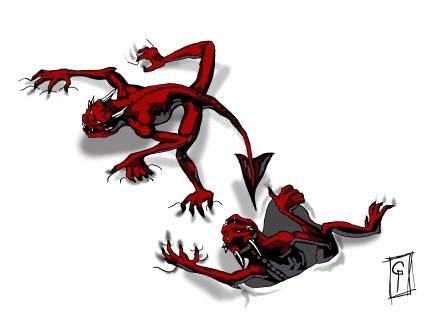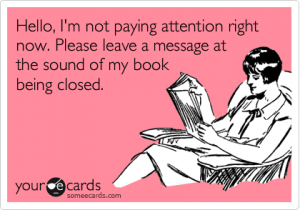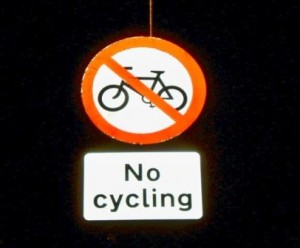 I had wondered about writing a shameless piece of self-promotion, itemising all the advantages of ‘Peacehaven’ for writers seeing as Jo Franklin is here as I write – but I couldn’t… Continue reading
I had wondered about writing a shameless piece of self-promotion, itemising all the advantages of ‘Peacehaven’ for writers seeing as Jo Franklin is here as I write – but I couldn’t… Continue reading
Tag Archives: writers
What! You too?
From the words of C.S.Lewis
‘Friendship is born at that moment when one man says to another: “What! You too? I thought that no one but myself . . .”‘
This afternoon I had a visit I had been both looking forward to – and dreading. For some while I knew a fellow writer was going to call. Someone who set out about the same time as I did, who is talented and committed, and who wanted to talk about writing.
The gap of time allowed my maungy, sad little twin demons of envy and fear to whisper at me. They blew sleet-cold worries down my neck.
I bet he’ll have been published already.
You’ll have to admit you’ve got nowhere yet.
How will you feel when he gets out a book with his name on?
What exactly have you got to show for over four years’ effort?
It didn’t help that it’s close to my least favourite time of year – Mothering Sunday – when I always feel insecure and vulnerable. Nor that I am waiting to hear if any agents are interested in my Selkie novel. It took some arm twisting from my Chi-SCBWI friends to put it out there again.
My unarmoured head feels so exposed above the ramparts.
He came. And over time and coffee, his honesty dissolved my mask, just as surely as his daughter’s marshmallows disappeared from her little cup in the cafe. I could see the same kind-ness of hard-won understanding in his face. The empathy of time served and mutual frustration.
No need for me to hide. We’re more siblings than rivals.
That broke me open, let the old warmth out and sent the two stony nasties back into their cave. And what rolled the boulder across their threshold was his absolute need to write. The imperative, regardless of sense and logic and all the will-it-make-a-living questions to get the stories down. How the breath of his ideas filled his canvas, blew him onwards.
I hope my friend reads this.
It’s not ‘you will get there‘ I want to engrave on maps of the future, surrounded by mermen and whales. There is no need when you have already left land and certainty.
But we already have successes to share – and there will be more.
We are both writers.
Writers are not rivals…
…or why I continue to review other people’s books.
I found Jane Friedman’s piece: How Long Should You Keep Trying to Get Published? convincing and useful. As you do, I read other articles on Writing on the Ether and came across this one written by journalist and critic Porter Anderson:
Amazon Reviews: Damned If It Does and…
I put up with the annoying adverts and read it. I thought about what he said a lot:
Maybe it’s because many authors are only now beginning to grapple with the realities of a business world.
That struck home. And:
And vendors — in this case, authors — can never be seen as unbiased and fair if they’re evaluating and holding forth on each other’s work.
But then I thought longer.
I thought of the lovely Maeve Binchy . She saw us writers as all putting another stone on the cairn, building up our collective work.
We are not rivals – we’re fellow workers.
I am comfortable reviewing Candy Gourlay’s work because I will never write like her. People looking for work like hers won’t switch to mine no matter what I said.
And it wouldn’t even matter if I comment on someone sort-of similar, Frances Hardinge say. She will probably produce a book a year – and so will I. Fans of either us will read more than one book a year I think – so they might like both. No conflict of interest – real or perceived – in my view.
Another way of looking at this: I want a knee surgeon to comment on the effectiveness of a recent eye operation. I’m more than happy for the owner of a fish-and-chip shop to give her evaluation of Jamie Oliver’s 15. Especially if they tell me what they do as part of that review.
It’s what Joanne Harris said – we know what we’re talking about. You can chat to Joanne on Twitter – and I do – and there is no agenda. She has no need or wish to hide, dissimulate or do anyone else’s writing down.
Of course, I was shocked and saddened by the sock-puppetry scandal. I wrote about this and Roger Ellory in a previous article. It genuinely made me cry. But it’s like No Cycling signs: the beggars who are going to knock old ladies over will ignore the signs – and the ones that obey would take care anyway.
On a more philosophical note, I have another objection to his stand –
Politicians, the smart ones, learn to do all they can to avoid any appearance of conflict of interest, even if they have no such actual conflict.
I hate the concept ‘seen to be doing the right thing’. Just do the right thing.
Concern about appearances leads to tick box sheets and checking up on them – not the thing itself. It’s how we get nurses so busy filling in forms they haven’t time to care. It’s how we get teachers so busy planning by day, week and term they are too tired to respond and adapt to changing circumstances – and marked down if they do.
That would be why you’d get mealy-mouthed comments – more concerned with appearance than honesty.
So I stand by my reviews.
I will continue to do the right thing.
‘It’s not about good books any more…
… it’s about the hook.’
This quotation comes from a very recent Hodder Children’s Books Acquisition Meeting courtesy of Beverley Birch.
Beverley presented an illuminating talk, followed by a Question and Answer session, to the Hampshire Writers’ Society at Winchester University on Tuesday 10th January 2011. It was a sobering presentation.
The essential point for us as aspirant writers in the current market to grasp is that our chances of being taken on by commercial publishers have very little to do with the readership. It is not about children.
It is about the buyers from Tesco, Asda et al and to a lesser extent, W.H. Smith and Waterstones. If we do not have a ‘high concept’ pitch ( think ‘Snakes on a Plane’) that will appeal to these buyers, then we may well be better off self-publishing.
It is not enough to have a coherent plot, engaging characterisation and a well-conveyed setting. There must be pace and suspense, of course.The voice of the piece also must be distinctive and vigorous – and it must be commercial.
It is this last that shrivels my heart.
What do you do if your imagination runs to less easily marketed ideas?
What do you do if you’ve never been attracted by the mainstream?





